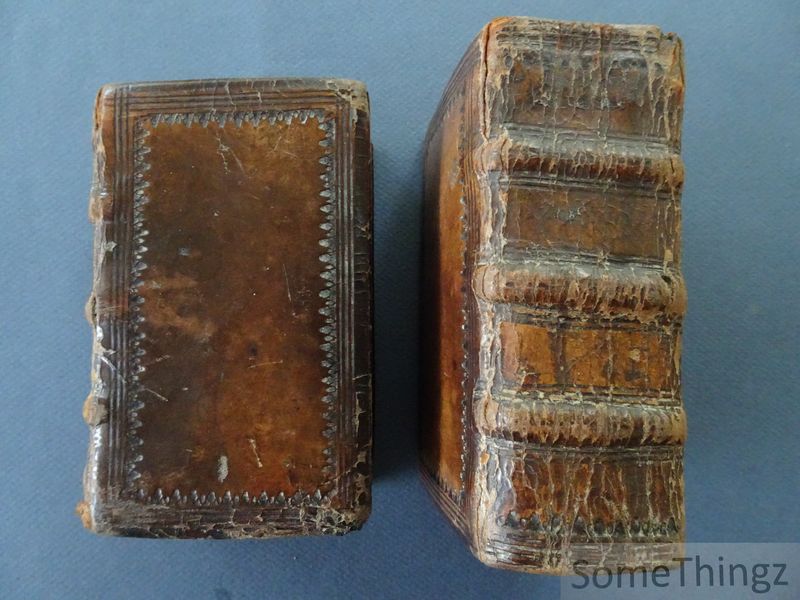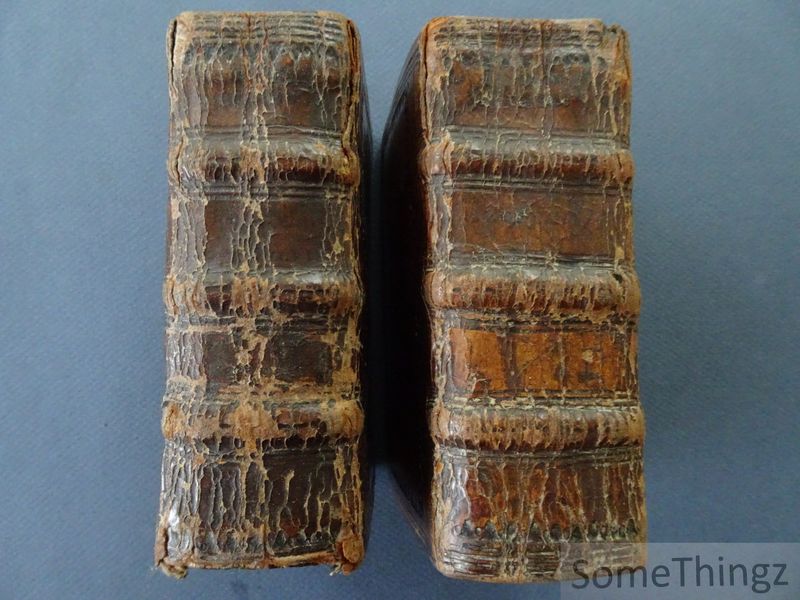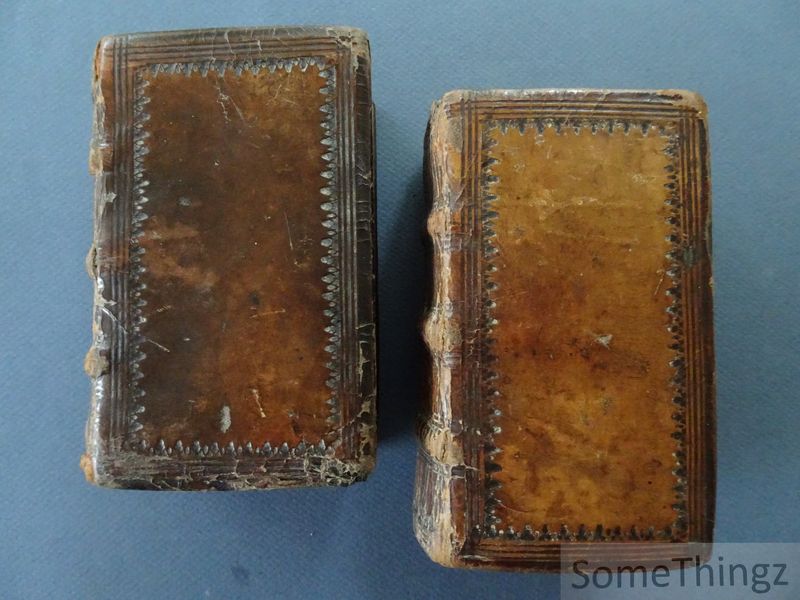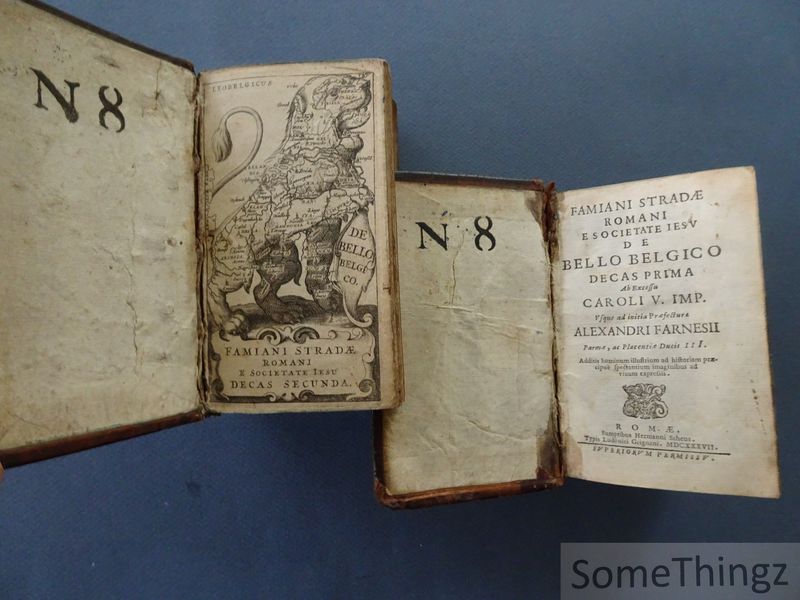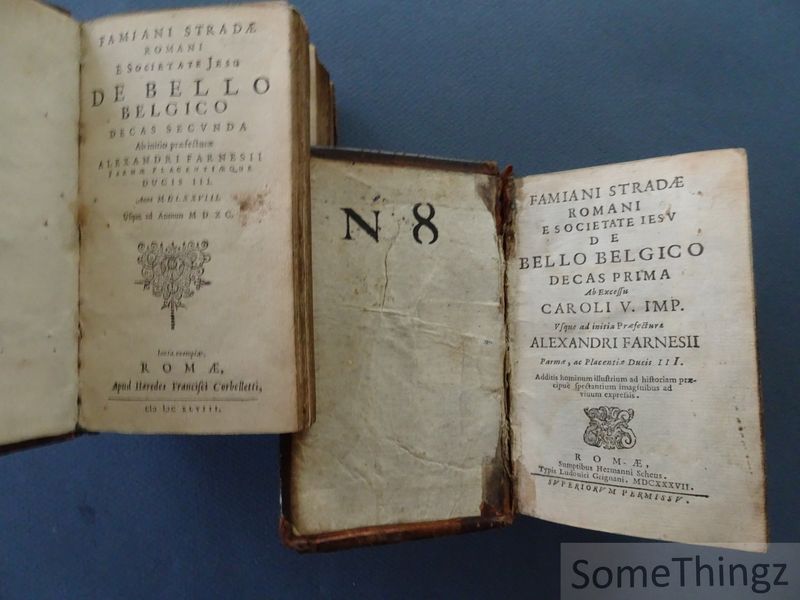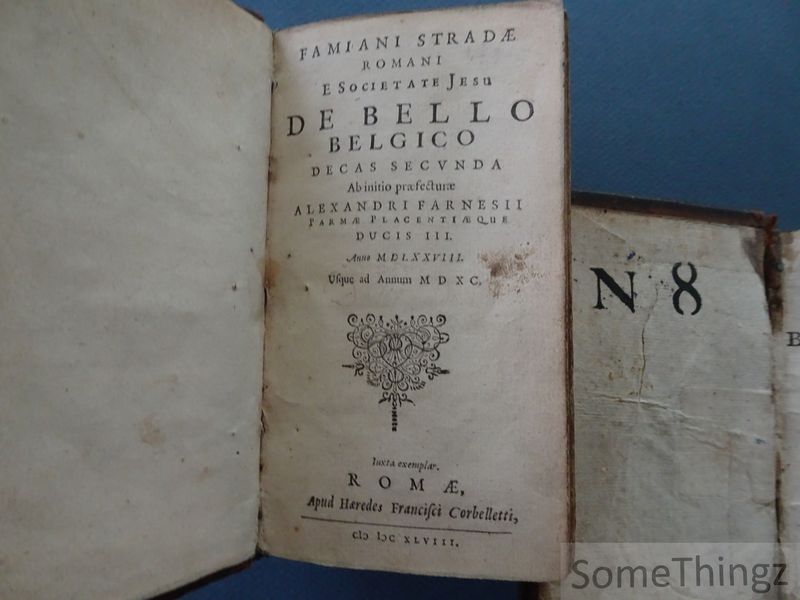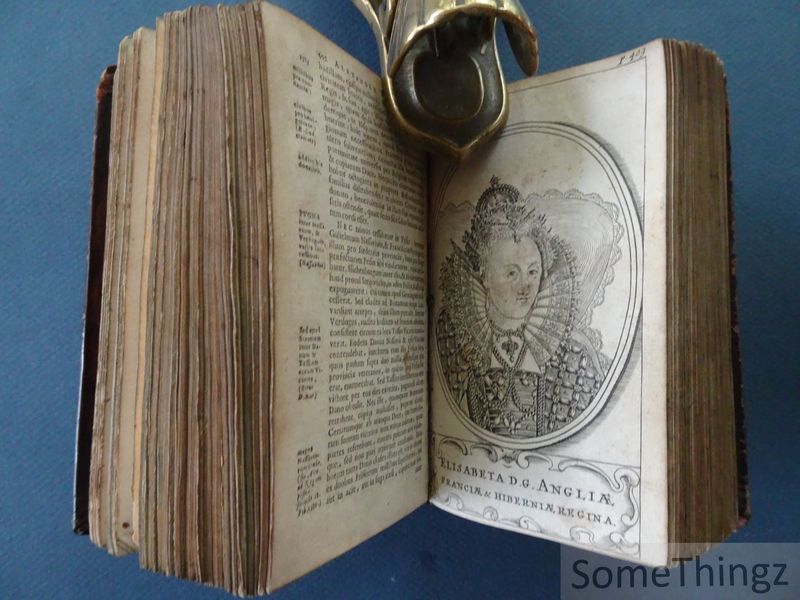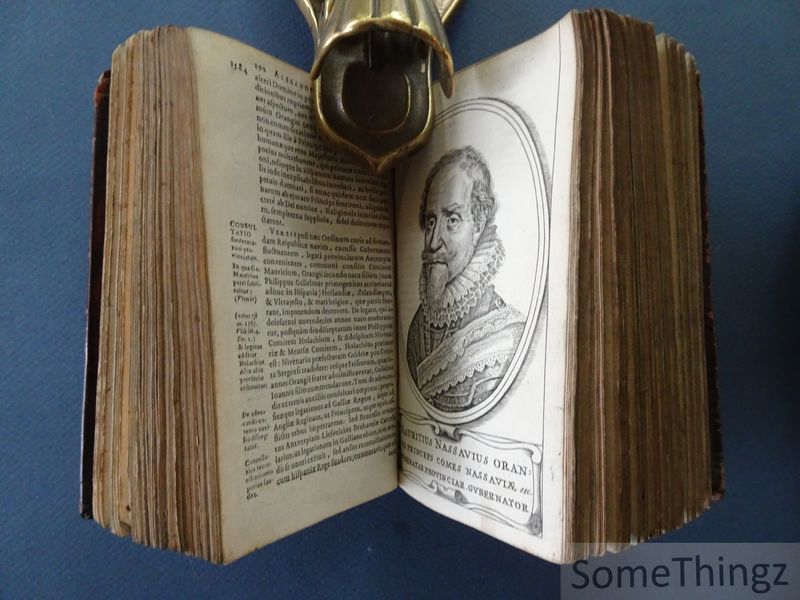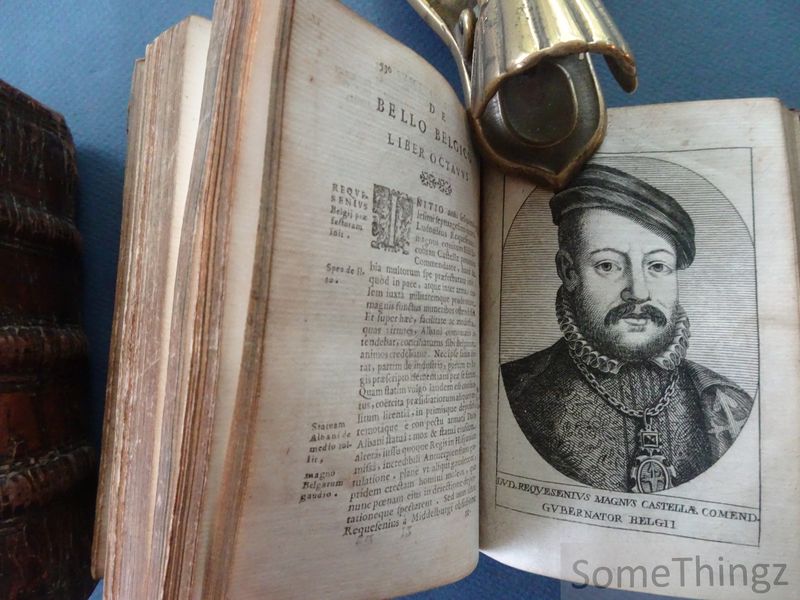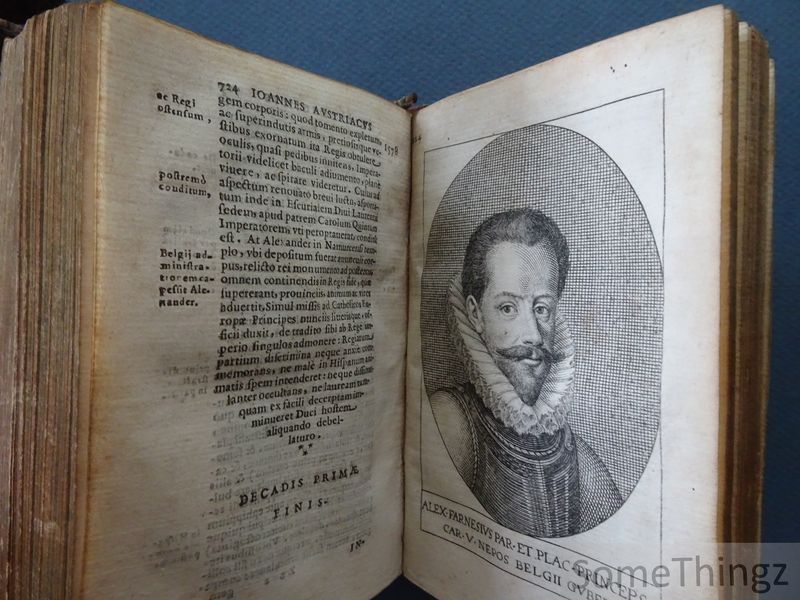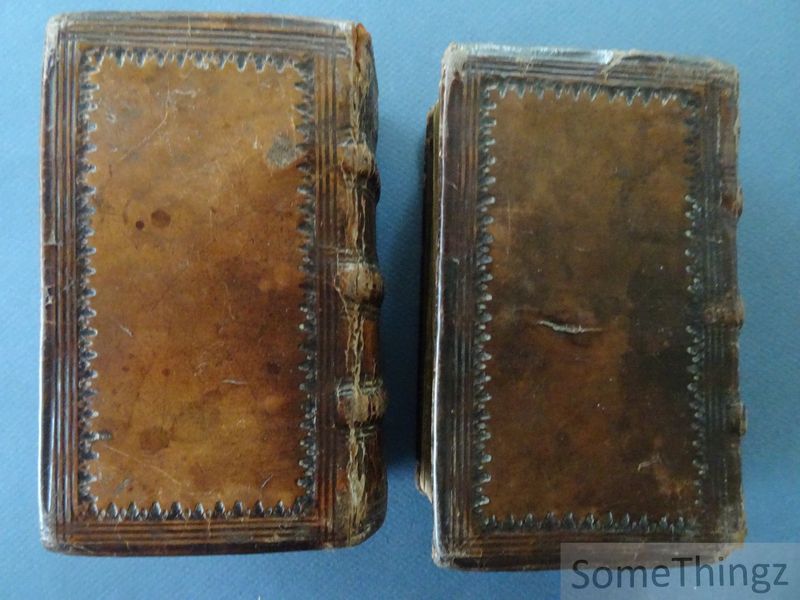BOOKS
Stradae Famiani [Strada, Famiano].
De bello Belgico. Decas prima. Ab excessu Caroli V. Imp. usque ad initia Praefectura Alexandri Farnesii. Decas secunda. Ab initio praefecturae Alexandri Farnesii anno MDLXXVIII usque ad Annum MDXC. [2 volumes, map "Leo Belgicus" included.]
Romae, Sumptibus Harmanni Scheus Typis Ludovici Grignani / Apud Herdes Francisci Corbelletti, 1637 - 1648.
€ 495.00
2 volumes, contemporary full-leather bindings, blind stamped decoration, vol 1: [16]+724+[136]pp. and 12 engravings (portaits), allegoric frontspice included, vol. 2: [12]+642+[90]pp. and 11 engravings (portraits), iconic frontispice "Leo Belgicus" included, 9x14cm., in good condition (bindings with wear, spine vol. 1 damaged at the bottom, interior fine).
The book by Famiano Strada is a two-fold narrative in Latin, combining Decas prima and Decas secunda into a comprehensive chronicle of the war and governance in the Low Countries. The first segment (Decas prima) covers from the abdication of Emperor Charles V to the start of Alexander Farnese?s prefecture, offering a detailed account of Habsburg rule, religious conflict, the Dutch revolt, and the early stages of the struggle for independence. The second segment picks up at Farnese?s importation as governor (in 1578) and traces the events until 1590, documenting key military campaigns, sieges, political manoeuvres, and the shifting balance of power in the region. Strada interweaves portraits of prominent figures, archival materials, and his own Jesuit perspective, producing both a narrative history and a sourcebook for the Eighty Years? War. The work thus serves historians as a rich primary source for late-16th-century Low Countries history, particularly in relation to Spanish rule, the Reformation, and the Dutch independence movement. Famiano Strada (1572-1649) was an Italian Jesuit historian and scholar of the Society of Jesus. Born in Rome, he became noted for his erudite Latin compositions and historical works. His chief work, De bello Belgico, drew on archival sources and his Jesuit education to narrate the complex events of the Dutch revolt and the Habsburg governance of the Netherlands in the late sixteenth century. Strada?s scholarship enjoyed respect in his time for its detail and style, and today it remains an important historical source for early modern European military and political history.


